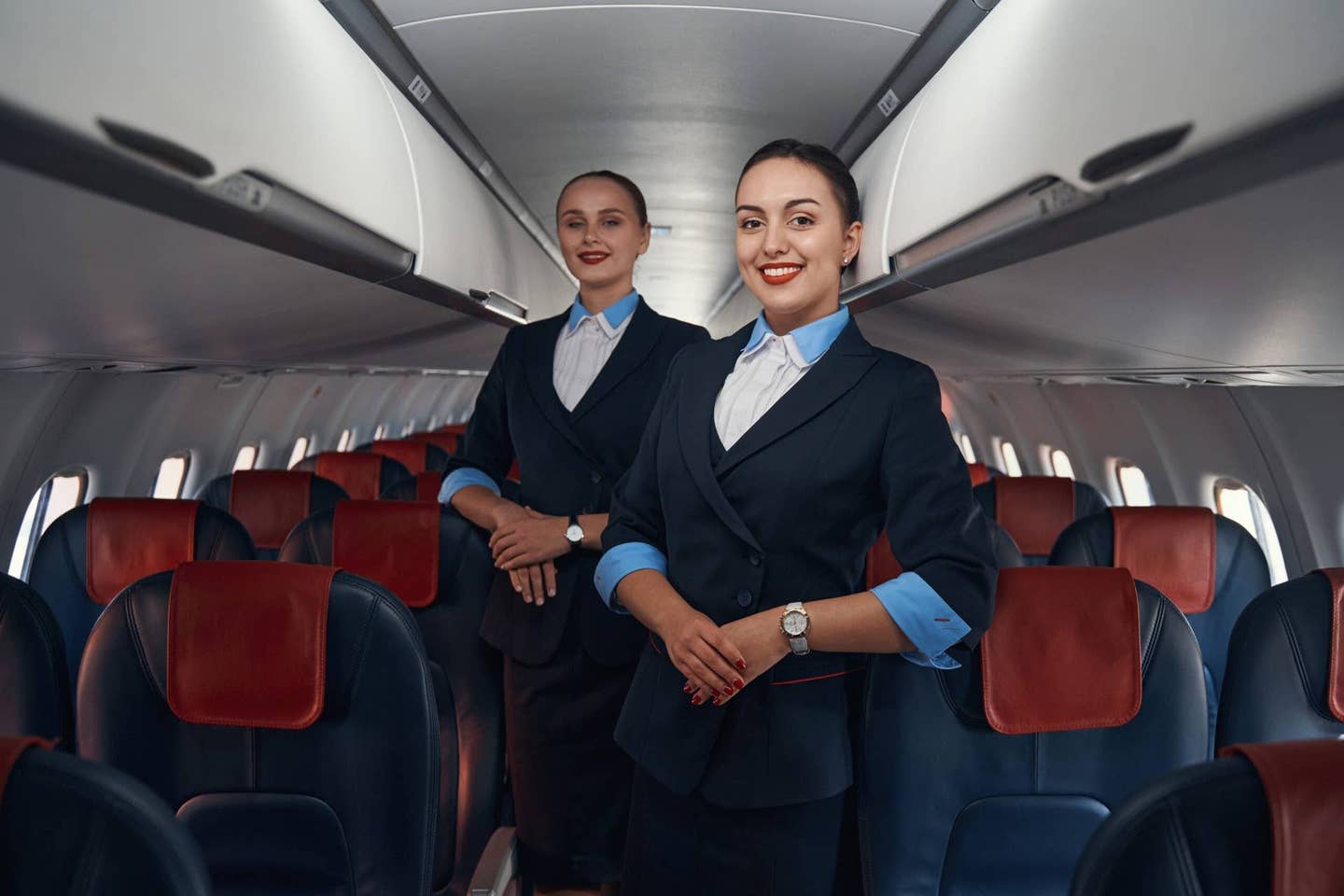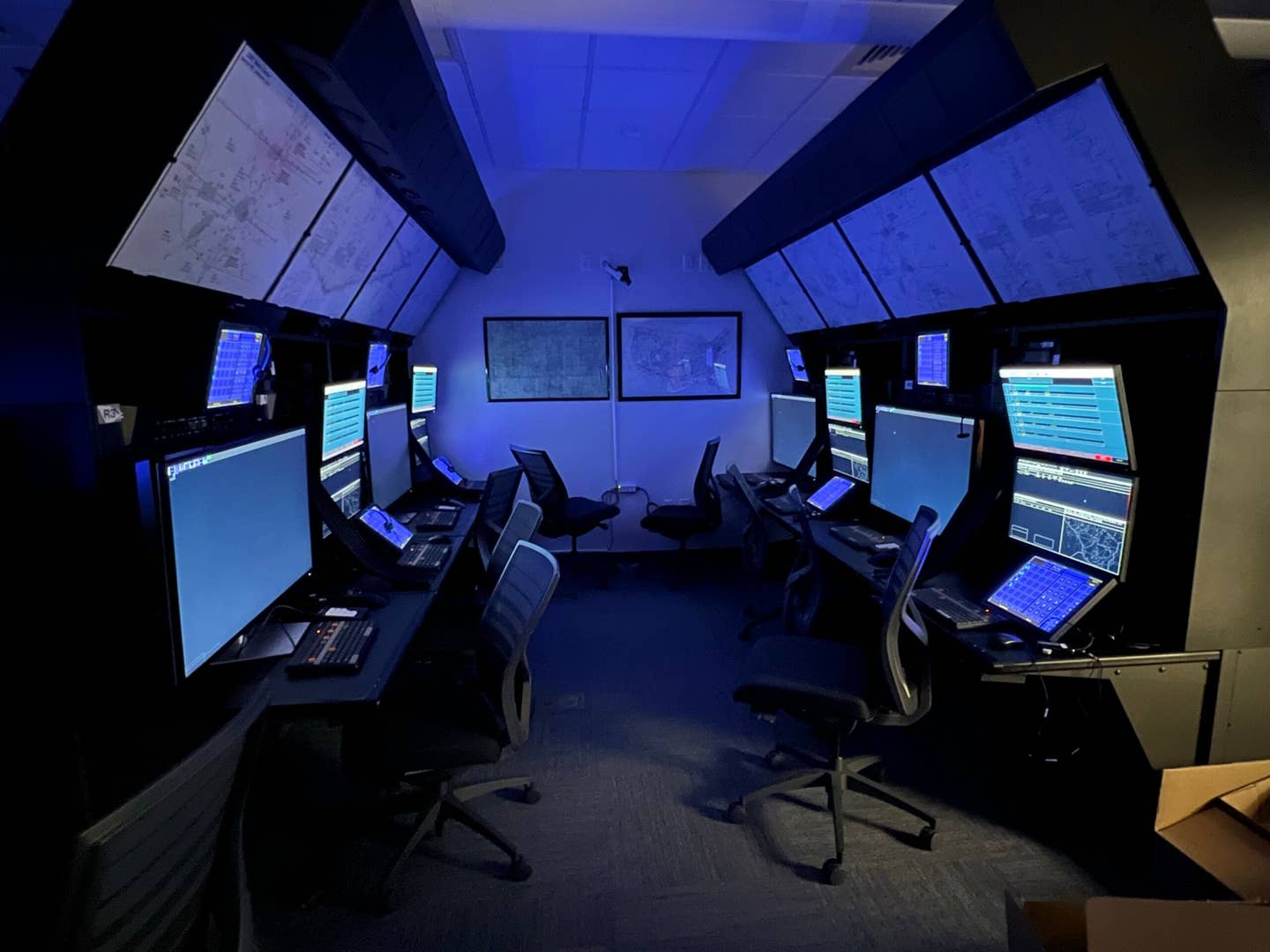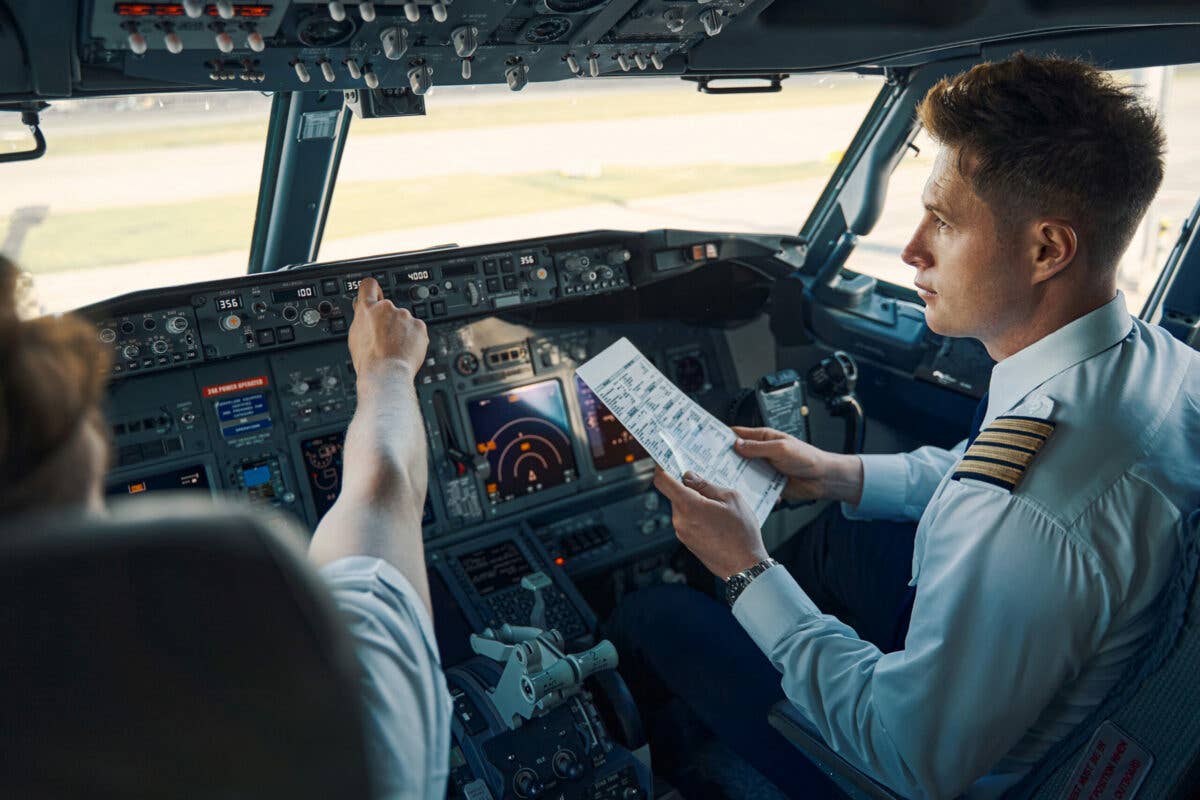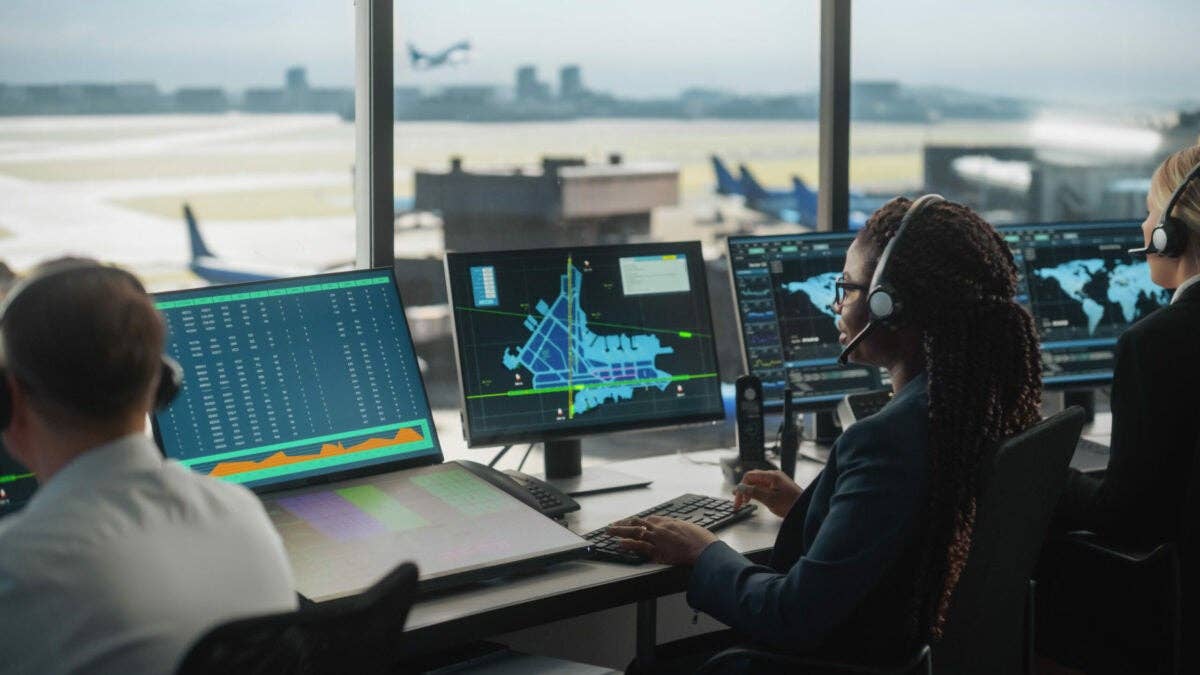Flight Attendant Career Paths Within an Airline
Discover which airline jobs that often attract those with flight attendant experience.

Customer service, leadership, and communication skills learned as a flight attendant are highly transferable and valued in many other positions. [Credit: iStock]
If you ask a new flight attendant why they started flying, most will tell you it’s because they love to travel. The role of a flight attendant seems glamorous from an outside perspective, with constant travel and excitement. The reality is that it’s a quite demanding job, full of long days away from home, odd hours, and inconsistent schedules.
Flight attendants are responsible for providing customer service and monitoring safety on board passenger aircraft. For some, the lifestyle is a great fit, and they can work the job for a long time. Others find themselves burning out, craving a consistent sleep schedule, or simply wishing for more time at home.
For so many flight attendants, the love of flying and travel never goes away, and it’s hard to imagine leaving the airlines for a “normal” job. The good news is that there are many other jobs in aviation that don’t require employees to actually be in the air. Ground operations are essential for making flights happen and can be an incredible solution for flight attendants who love flying but want to spend some time on land.
Ground-Based Airline Jobs
When most people think of airline jobs, they likely are aware of the roles of flight attendants and pilots. However, there are many other jobs that make up an airline operation.
Crew scheduling and management
Crew schedulers assign flight attendants and pilots to work flights based on operational needs and crew availability. They ensure every flight has the right amount of people working on board to minimize delays and keep operations running smoothly.
Schedulers often have to think on their feet and handle last-minute changes due to cancellations, delays, sick-day calls, and other crew shortages. “You really need to be…adaptive to the situation,” says Ryan Nogalski, a crew resources coordinator at a cargo operator. “You definitely have to be a problem solver, but think of all possible solutions.”
Making sure every flight is staffed strategically also requires consideration of duty time limitations and rest requirements. With so many moving pieces, the job of a crew scheduler can start to look like a chessboard. Flight attendants with excellent organizational, communication, and problem-solving skills might find they enjoy the challenge.
Recruiting and training
If you’re the flight attendant who loves meeting new people on the jumpseat, recruiting and training might be the perfect fit for you. Recruiters find candidates for jobs through online listings, career fairs, industry events, and partnerships with universities or training programs. They conduct interviews, evaluate résumés, and present information about the company to potential new employees.
Training
Flight attendants all go through extensive new-hire training before working on an airplane. Most instructors who lead new-hire training are current or former flight attendants themselves. They are more familiar with the practical application of the training content better than anyone, so they are well equipped to teach it.
- READ MORE: Which Aviation Companies Are Hiring?
Recruiting and training departments work closely and often have some crossover of employees who participate in both roles.
Hiring
One former pilot recruiter, Carolynn Kitchen, found a true passion for supporting pilots in the hiring phase. When her husband became a pilot, she left recruiting to start her own business advising pilots on their résumés and job applications. “It’s the best, being able to serve and represent pilots in the best way that I can,” Kitchen says of her job. “They always learn something new about themselves when I ask the hard questions.”
When asked which skills are most important for professional success in pilot recruiting, Kitchen provides insight from both sides of the hiring table: “Attention to detail, professional writing skills, and in-depth aviation knowledge” can give recruiters and résumé writers a competitive edge.
Customer Service
Flight attendants are no stranger to customer service. As a key part of their job, they cater to the needs and requests of passengers on a daily basis. Airline customer service roles encompass employees who interact directly with passengers to solve a problem or provide a service.
Reservation agents
Reservation agents handle bookings, inquiries, and general customer issues. They may work with customers over the phone, through online messages, or at an airport counter.
Ticket agents
Ticketing agents are the first face passengers see when they enter the airport. They assist with the check-in process, handling baggage and printing boarding passes as needed.
Gate agents
Gate agents manage the boarding and deboarding processes. They scan tickets as passengers move from the terminal onto the airplane and ensure everyone on board is booked for that flight. Gate agents also monitor luggage as it’s carried onto the airplane, verifying whether it will fit or needs to be checked.
Customer service jobs at airlines use many of the same skills that flight attendants exercise regularly. Flight attendants transitioning to ground-based customer service roles will already be familiar with the job, making for a smooth transition.
Ground Operations
Ground operations are all of the physical tasks that must happen outside of the aircraft before and after a flight. Ground and ramp agents coordinate baggage loading and unloading, aircraft fueling, aircraft pushback, deicing, and more.
On-the-job gear recommendations:
Flight Dispatchers
Dispatchers are the true masterminds behind the whole operation. They create flight plans, make decisions about cancellations and delays, and monitor flights in real time.
- READ MORE: How To Become a Flight Attendant
Flight planning is a complex process that takes into account weather conditions, fuel requirements, possible alternate destinations, and overall efficiency. Dispatchers must be knowledgeable about aviation and airline-specific rules and regulations. They have to be able to think critically and make decisions that directly impact the airline.
Flight attendants with a passion for aviation and sharp problem solving skills will be best suited for a role as a dispatcher. A dispatch certification is required, a process which can be completed in one to two months.
Preparing for the job:
- Aircraft Dispatcher Oral Exam Guide
- FAR/AIM Federal Aviation Regulations/Aeronautical Information Manual
Maintenance
Aircraft mechanics are responsible for maintaining aircraft to meet FAA and airline safety standards. Their duties include performing routine inspections and repairing aircraft as needed. They also perform preventative maintenance, improving parts of the airplane that aren’t actually broken to keep them from deteriorating.
General aviation mechanic Winston Nelson cut his teeth in the construction business but always wanted to learn how to fly: “I grew up thinking it was this out-of-reach job that you had to know someone to get into.” Nelson says for a budding aircraft mechanic to succeed, they’ll need to “want to learn and be motivated to grow.”
Becoming an aviation mechanic requires extensive knowledge and training. Flight attendants with no prior maintenance experience may need to plan ahead to make this career switch, as training programs can take one to two years to complete. Some airlines may offer internal scholarships or tuition reimbursement for employees who train to become mechanics.
Other Jobs in Aviation
While the roles of pilot and controller don’t fit the bill of ground-based (pilot) or airline jobs (controller), they are classic aviation positions that can’t go unmentioned. Both are excellent career choices for those considering transitioning out of a flight attendant job but wanting to stay in aviation.
Air traffic controller
Air traffic controllers (ATCs) communicate with pilots while they’re flying or taxiing to create separation between aircraft. They contact pilots via radio to give instructions and advisories related to the flight. Controllers work from airport towers or control centers, depending on the airspace for which they’re responsible.
An anonymous ATC says that to succeed in this role, you need a willingness to learn. As federal-level employees, controller hopefuls will also need to pass preemployment testing and requirements.
Controllers, like mechanics and dispatchers, require higher levels of training and certification than other roles. Becoming a fully certified ATC can take several years, with some of the certification process involving on-the-job training.
Pilot
If you love the lifestyle of being a flight attendant but want a bigger challenge and better pay, becoming a pilot could be the right move. Aspiring to be a pilot is hard work and takes years of dedication to acquire the necessary training and qualifications to be hired by an airline. If you’re tired of looking at the galley and want a nicer view, there is truly none better than the one from the flight deck.
There are also plenty of pilot jobs that don’t require the amount of time and experience the airlines do. Many pilots find their passion in another type of flying and never pursue airline careers. The world of pilot careers is vast.
Flight attendant to first officer
Former flight attendant Colleen Kennedy worked at an airline for three years before leaving in 2019 to attend flight school. Now a first officer at a regional airline, Kennedy can point to several skills she developed as a flight attendant that have served her well as a pilot.
Kennedy says having learned about “time management” and how to “work with a crazy schedule but still take care of yourself” have been invaluable to her.
Start by looking into your own airline and finding out if it offers a career track for pilots. Some major airlines offer benefits to employees who partner with their training program. This could mean retaining health benefits, qualifying for certain scholarships, job security if you leave training early, or even reduced training costs in some cases.
Pilot training tools we love:
Benefits of Exploring Other Airline Jobs
For flight attendants who are ready for a change but love aviation, jobs in just about every imaginable category are available to explore.
A lateral move within your airline can be one of the best ways to transition to a new position while maintaining a level of familiarity. You may also find that doors open more easily within your current company than outside of it. Many airlines open positions internally first, especially roles like flight attendant training and recruiting. With so many potential candidates in the organization already, they can save time and money by moving around their existing resources.
Growing within your own company can also lead to career advancement opportunities. Your experience and record of success at the company could qualify you for management or supervisory roles.
Moving into a ground-based role after working as flight crew often allows for more predictable schedules. This improved work-life balance means more time at home or spent however you like. Your days are not dictated by the demands of constant travel.
How to Transition to Other Airline Jobs
Leverage the skills you’ve acquired as a flight attendant when applying for new roles. Customer service, leadership, and communication skills are highly transferable and valued in many other positions. You’ve also likely developed even better adaptability and professionalism throughout your time on the job. All of this is relevant experience and worth highlighting on a resume or cover letter.
Continue networking within your company and the job market you’re drawn to. Attend industry events and get involved in relevant organizations. Your participation shows you’re a serious candidate and have genuine interest in the role.
Talk to your supervisor or a leader that you trust. Let them know which types of opportunities you’re interested in and be prepared to share why you think you’re a good fit. They may know of openings coming available or be able to recommend training opportunities.
Navigating Career Changes
With so many options of where to go next, you may be unsure where to start. Begin by researching the jobs that interest you most. Read job postings, refresh your résumé, and talk to professionals in roles you’re considering. Approach your career change with curiosity and an open mind. The best job for you will be the one that aligns most closely with your interests and priorities.
FAQ
How long does it take to become a flight attendant?
The interview and hiring process to become a flight attendant can take a few weeks or months. Once hired, flight attendants must attend mandatory training for anywhere from three to eight weeks, depending on the airline.
What is the career path of a flight attendant?
Flight attendants at most airlines receive predetermined annual pay increases until around the 13th year. Once they’ve reached the top of the pay scale, they continue earning at that level until they quit or otherwise leave their position. There is no mandatory retirement age for flight attendants in the U.S.
Do flight attendants get paid well?
Flight attendants generally are compensated based on the number of hours they fly in a month. The more they fly, the more they earn. Pay is relatively low to start but increases annually.

Sign-up for newsletters & special offers!
Get the latest FLYING stories & special offers delivered directly to your inbox






